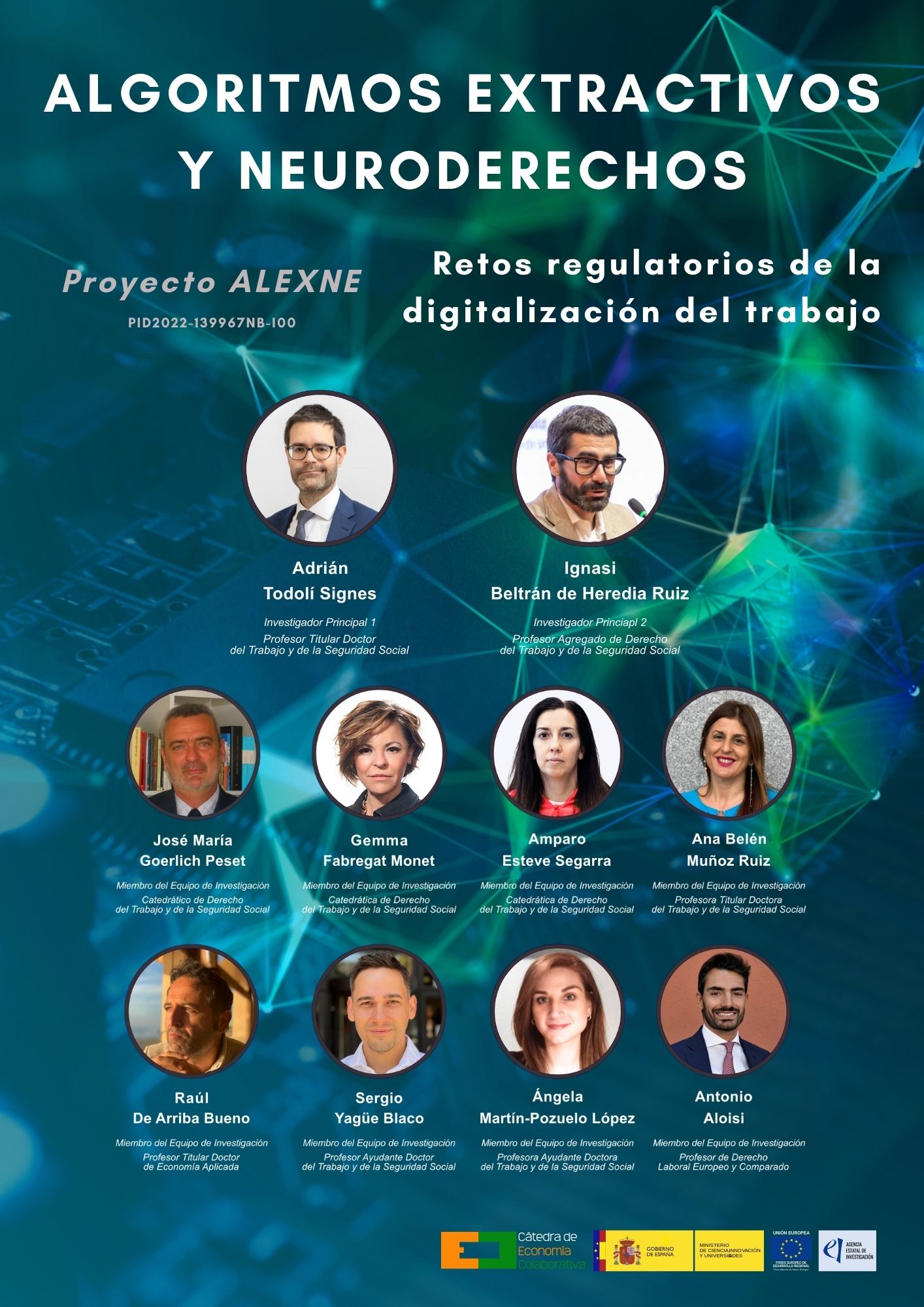The project "Extractive algorithms and neurorights: regulatory challenges of the digitisation of the workplace" (ALEXNE, Spanish acronym) brings together an important group of researchers (lawyers and economists) from the UV and other universities who, for years, have been studying the effects of digitisation on the labour market.
From an interdisciplinary perspective, combining law and economics, the project aims to address changes to the internal balance of employment contracts caused by algorithms and the necessary evolution of labour institutions to fulfil their intended purposes. This project is part of the search for a Workers' Statute for the 21st century.
The basis premise is that companies are currently using algorithms to diminish the bargaining power of workers.
Thus, although electronic surveillance regulations are intended to be defensive, (detecting labour breaches), the reality is that algorithms are currently being used to collect all possible information on workers to extract maximum productivity, even if it comes at the cost of their health or results in an unfair distribution of the income generated by the company. The project proposes that regulatory policy analyses should start from the effects that technology produces on the employment relationship. Therefore, the objective is not to regulate the technology as in the past, but rather to gain a better understanding of its effects on employment contracts, which allows for the proposal of solutions to issues such as algorithmic discrimination, health risks associated with algorithmic management, the diminished bargaining power of workers, and the potential threat to the workers' unconscious selves.
For the first time in history, intelligence is being separated from conscience. In the economic-productive sphere, this process is causing what is known as the "Great Disconnection", where companies are run by conscienceless algorithms that lack empathy. There is a whole branch of behavioural science that examines how to influence people through minor environmental changes. This means that algorithms can perform millions of trial-and-error attempts with each worker until they find the nudge that changes their behaviour in favour of the company. This is the context for neurorights, a set of exploratory rights that aim to prevent employers from using invasive technologies to learn about workers' emotions or feelings and using them against them. These rights also aim to prevent employers from subliminally inducing workers to engage in behaviours that are not in their best interests. The purpose of this project is to evaluate the necessity of creating a protective barrier against these intrusions and to propose a solution to address them.
Without a doubt, it is certainly the right time to address this issue. Currently, various standards are being developed on this subject at all levels and multiple national and European bodies are being established to analyse, monitor and enforce regulations against algorithms. This project has two novel aspects compared to the existing literature on the subject:
- It has a holistic and multidisciplinary focus from a regulatory perspective on the effects caused.
- It explores the concept of neurorights as a means of protecting workers.



